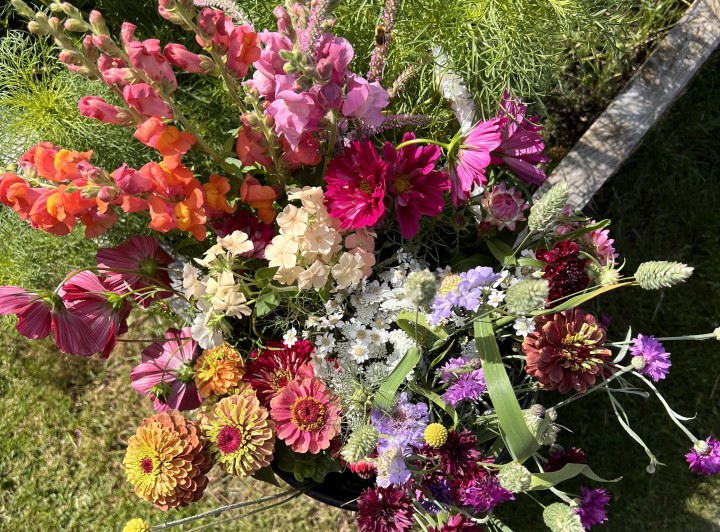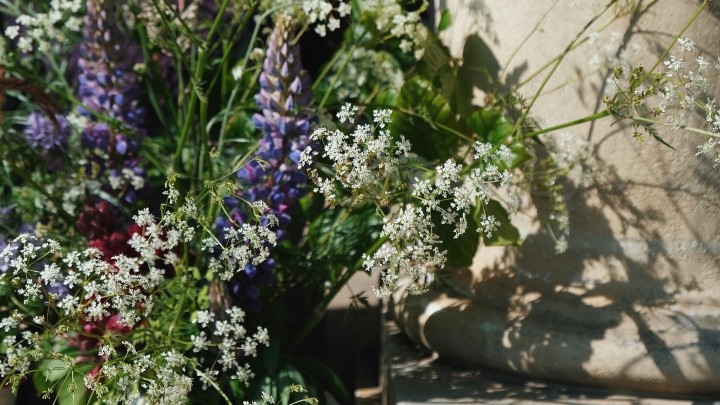Flowers may be seen as a niche part of nature-friendly farming, but Roisin Taylor is determined to show they can be grown successfully within a range of sustainable farming systems. She also sees real potential for collaboration, with farmers and growers working together to diversify incomes and share the benefits.
Cut flowers currently represent only a small part of British agriculture, especially when compared to major sectors like livestock and arable farming. But Roisin Taylor is keen to demonstrate how flower growing can sit comfortably within nature-friendly farming systems. She combines her love of horticulture with in-depth research into how well British farming is prepared for a warming world shaped by the climate crisis.
Raised in Weardale, County Durham, Roisin started working on a local farm as a teenager - starting out as a dog walker for the on-site kennels. It wasn’t long before she developed a passion for all kinds of outdoor work, from traditional skills such as dry stone walling to looking after pigs and sheep.
By the time she completed her studies at Cambridge University, her mum had also taken a leap - leaving her career as a writer to follow her own passion for growing by founding the Verde Flower Co, starting with a polytunnel on a former market garden in Hexham, Northumberland.
Roisin supported her mum’s business, while working at a farm and in a cafe. “I was helping her out as much as I could, but when I finished as an undergrad I actually wanted to be a dry stone waller,” she recalls. “I thought that was the best thing ever.”




